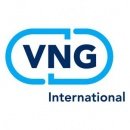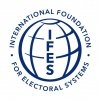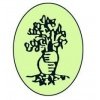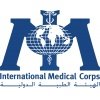Local Political, Conflict, Economy and Gender Researcher & A...
Programme title and number: Sustainable Development through improved Local Governance (SDLG) Programme - SDLG SRoL - 11448.22.PS.1C
Proposed position: Local Political, Conflict, Economy and Gender Researcher & Analyst
Background of the VNGi Country Programme and expected results: The Five years (2022-2026) Sustainable Development through Improved Local Governance (SDLG) programme, funded by the Netherlands Ministry of Foreign Affairs and implemented by VNG International, focuses on increasing legitimacy and stability in marginalized communities in rural Palestine. By focusing on local governance, VNG International aims to strengthen Palestine’s sovereignty and control over its territories, in Area A, B and C
The main challenge facing Palestinian cities and communities lies in the political, spatial, and administrative divisions in the West Bank. The division of the West Bank into Areas A, B, and C, led to the emergence of the phenomenon of land fragmentation, scattering and scarcity. This resulted in a lack of established integrated service networks across local governments and insufficient representation of communities in marginalized areas by their local governments.
Therefore, the program’s main objective is: LGs in marginalized communities in rural Palestine are increasingly legitimate and stable. In order to achieve this, we will work on four outcomes:
Outcome 1: Palestinian LAs act more accountable, responsive and inclusive to resident’s needs.
Outcome 2: Palestinian LAs act in a more inclusive, sustainable and prepared manner on the basis of strategic and spatial plans.
Outcome 3: Palestinian stakeholders provide an enabling environment to the developing Village Councils.
Outcome 4:Palestinian government actors are aware of the evidence base to enhance resilience of communities in Area C
Context for current Terms of Reference:
Area C is fundamental for the viability of Palestine and its economy, as it spans 61% of the West Bank’s territory. Around 300,000 Palestinians live in area C, all of whom face territorial and administrative fragmentation and financial restrictions. In addition, the other 2.6 million Palestinians live in Area A and B depend on Area C for their own movement and that of goods, as well as for the usage of natural resources, which all remain limited due to a complex set of restrictive policies and enforcement practices of Israeli authorities.
In September 2022, the programme started working with a pilot cluster of 8 communities located in the West of Ramallah and El-Bireh Governorate, namely; Shuqba, Qibya, Shabtin, Budrus, Deir Qaddis, Ni’lin, Kharbatha Bani Harith, and Al Midya.
To scale up and expand the positive experience and impact the programme is currently creating in the West Ramallah Cluster, the Advisory Committee of the programme led by MoLG decided on 20th November 2023 to target another cluster located to the South-East of the piloted one and includes Nine LAs, of which eight village councils (Ras Karkar, Al Janiya, Bili'n, Kafr Ni'ma, Deir Ibzi', Saffa, Beit 'Ur Al Fauqa and At-Tira), and the municipality of Beit 'Ur at Tahta. In totality, the cluster is home to about 27,685 inhabitants and spans an area of almost 67,883 dunums, of which 48,844 dunums are located within Areas "C” with a percentage of 72%.
To this end, VNGi is planning to contract a Local Researcher and Analyst to conduct a Political, Conflict, Economy and Gender analysis at these Nine LAs
Objective of this assignment:
The objective of this assignment is to inform the programme by assessing the political, conflict, economy and gender environment. The assignment is structured around the power analysis with the (local) government sector, understanding the drivers of conflicts, change, strategic governance, influences of corruption, formal and informal political processes, inputs and feedback loops that inform the local government sector. The assignment is expected to address the following key objectives:
Political, Conflict and Economic Analysis
- Provide detailed analysis of the power relations between all levels of government, examining political structures, processes and dynamics;
- Identify the drivers of success, the factors and obstructions to reform as well as the interests and incentives of the different political players and how these power relations affect the functioning of local governments;
- Design and undertake an analysis in which the local and national government structures, institutions, partners and stakeholders operate in the course of undertaking their roles towards effective and inclusive local governance and service delivery;
- Evaluate policy landscape, assess the existing policies and regulations that govern local government operations. Identify areas where policy gaps or inconsistencies may exist and propose recommendations for improvement particularly for targeted cluster.
- Conduct ‘drivers of conflict’ analysis to present a well-rounded picture of current conflict dynamics and related actors within the nine target communities, in order to arrive at a shared understanding of conflict risks, strengthen coherence and coordination in line with the ‘integrated approach to conflict and crises’;
- Assess economic conditions, analyse the economic factors affecting the targeted cluster, including economic development, employment trends, and fiscal policies. Identify opportunities and challenges that may impact the financial stability and growth of the municipalities.
Gender Analysis
- Provide insight into the gender roles of men and women in the target area and provide an analysis on how they impact the needs of male and female community members. Specific attention should be devoted to the views on participation in local politics and in local planning activities.
- Assess gender inclusivity, evaluate the inclusivity of policies, programs, and practices within the targeted cluster with regard to gender. Identify any gender-based disparities or barriers that may exist.
- Propose actionable policy recommendations to enhance gender equality within the targeted cluster. This includes recommendations for inclusive hiring practices, gender-sensitive service delivery, and the promotion of women in leadership roles.
These elements should be used to recommend management strategies to address or circumvent obstacles to the programme’s successful implementation taking into account the existing power relations in a sensitive manner. Therefore, the consultant is required to:
- Synthesize findings: Integrate the insights from the political economic analysis and gender analysis to provide a holistic view of the targeted cluster’s challenges and opportunities.
Develop comprehensive recommendations:Based on the analyses, formulate comprehensive and practical recommendations for enhancing overall governance, economic development, and gender inclusivity within the local government sector
The assignment will be implemented during the period starts on 02 January 2024 and ends on 07 Mar 2024. The allocated level of effort to perform the aforementioned tasks is 20 working days included the materials preparation and reporting.
Task One
Desk Review
Primary desk review, meetings with VNGi Team, understanding of the assignment and timetable, submission of an inception report including a specific methodology, work plan, and data gathering instruments.
To present (in written form) the research methodology to use during the assignment, including a rationale for its selection. The method will be shared at the start of the assignment, on which the VNGi SDLG programme team will provide feedback.
Deliverables: Inception report, in English
Due Date: 14th January 2024
Task Two
Interviews & Field visits to the target area
The expert is to hold and lead a number of interviews. These include private and public meetings with national stakeholders in Ramallah/El-Bireh & local stakeholders in the target area. At the start of the assignment the list of to be interviewed persons is determined jointly between the expert and the programme management team.
The purpose of the interviews is to ascertain from primary sources the existing power relations and networks of influence.
Analysis
The analysis should provide insight into all assignment objectives listed above. Including which persons, what groups, and which institutions active on national and target area level are of importance for the success or failure of the programme. The expert should argue why they are relevant to the programme.
The expert should further provide insight into the underlying power structures on national and target area level, as well the power and conflict dynamics that determine or predict behavior and decision-making by the identified influential persons, groups, and institutions.
Furthermore, the analysis should include analysis of gender roles in the target area and how this impacts the needs of male and female community members (specifically focused on inclusivity of local politics, policies, programs and practices).
Finally, the expert should provide a conclusion with the implications for the programme, including a list of recommendations on how to respond, address or circumvent identified obstacles to the programme’s success.
Deliverables: Draft Report, in English
Due Date: 22nd February 2024
Task Three
A comprehensive Political, Conflict, Economy and Gender Analysis Report.
Deliverables: Final Report, in English
Due Date: 07th March 2024
Education:
- A post graduate qualification in development, local governance and/or related qualifications.
Professional experiences:
- A minimum of 10 years of relevant practical work experience in the (local) government sector in Palestine;
- Knowledge and experience in implementing a Political Economy and Gender Analysis, preferably from a Local Government sector angle.
- Proficiency in using research methodologies, both quantitative and qualitative.
- Data analysis skills.
- Ability to articulate macro and micro level formal and informal political processes and development dynamics.
- Ability to present complex findings in a clear and understandable manner
- Experience in preparing reports and presentations.
Personality profile:
- Ability to engage within a politically sensitive environment and to work collaboratively with diverse stakeholders, including government officials, community members, and partner organizations.
- Excellent in written and spoken Arabic and English and ability to communicate effectively.
- Good reporting skills; good social interaction skills
- Pro-active and representative attitude towards work and assignments.
- Able to work within schedules
- Gender sensitive
Qualified Local experts’ individual / firm are requested to submit their application form that consists of: cover letter, CVs, technical offer includes methodology and approach, and financial offer by COB, Sunday, 24 December 2023.
Please indicate your ability, availability and daily rate in euro to undertake the above ToR.
Applications to be sent via email to
Mrs. Amal Odeh
Email: [email protected]





















